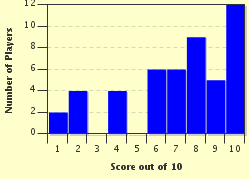Quiz Answer Key and Fun Facts
1. Which famous German composer, known for his nine symphonies, left us "Six Variations on a Swiss Song"?
2. "Au fond du temple saint" is the title of a famous duet from one of Bizet's operas. The duet is introduced by lovely harp music. What is the title of the opera containing this duet?
3. Did Paul Hindemith ever compose a piece for harp solo?
4. There are several classic composers who specialised in harp music. One of them was Jean-Baptiste Krumpholz. What did he call his opus 12?
5. Who composed the opera "Thaïs", in which the "Méditation" (a piece for solo violin and orchestra) is introduced by harp?
6. Elias Parish Alvars was one of the great romantic harp composers. From which country did he hail?
7. Some famous arias have been arranged for harp music. One example is Franz Liszt's "Liebestraum", arranged by Henriette Renie. For which instrument was "Liebestraum" originally composed?
8. Which Spanish composer created an "Impromptu" for harp?
9. Rossini introduced the aria "Dal tuo stellato soglio" with a harp solo. Which opera based upon the Book of Exodus contains this choir song?
10. Several arias from the ballet "Swan Lake" are accompanied by harp music. Who created this ballet?
Source: Author
JanIQ
This quiz was reviewed by FunTrivia editor
agony before going online.
Any errors found in FunTrivia content are routinely corrected through our feedback system.


